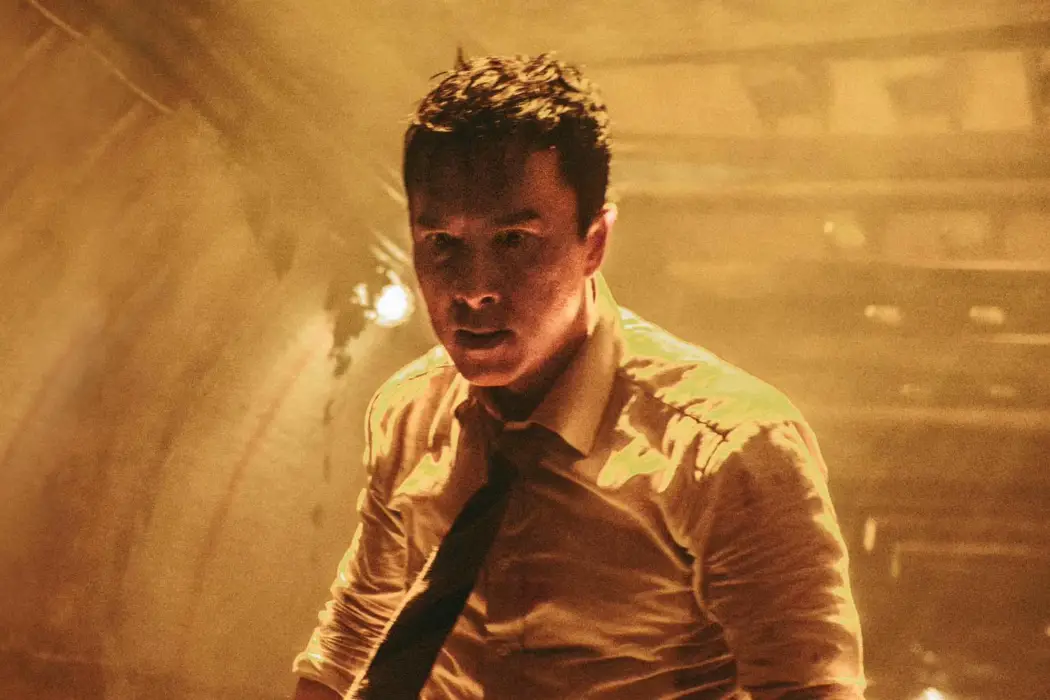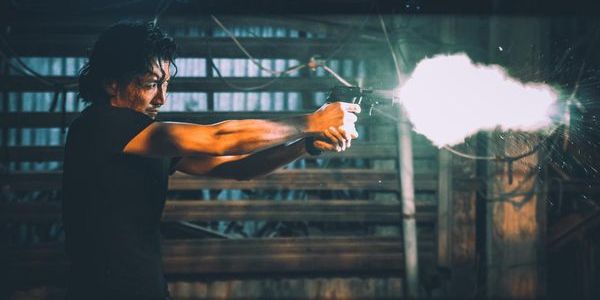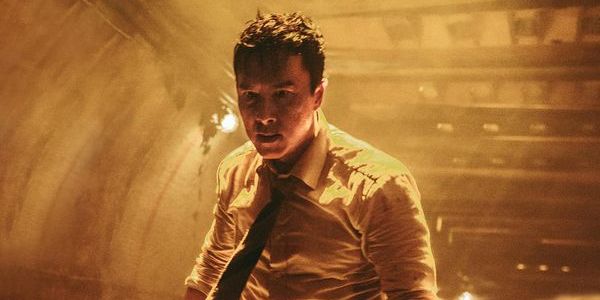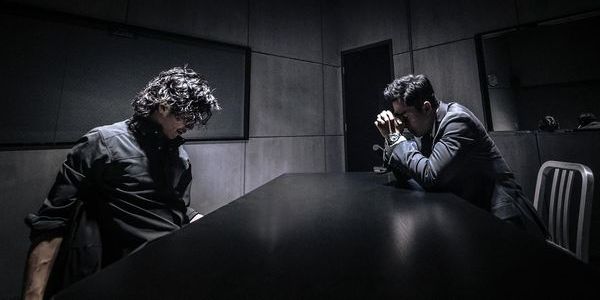Fantasia Film Festival 2021: RAGING FIRE

Wilson is a cinema enthusiast based out of Toronto, Canada.…
With director Benny Chan sadly passing away prior to the film’s release, it’s hard to experience Raging Fire without an overlying sense of melancholy. Chan has been a monumental staple of Hong Kong cinema ever since the 1990s, and his loss is a true tragedy that will certainly resonate with cinephiles around the world. But being his final gift to the cinematic world, Raging Fire is a resounding mic drop for one of Hong Kong’s most beloved and talented filmmakers. Featuring a career-best performance from Nicholas Tse, and squeezing out as much dramatic bravos as one could physically hope for from action star Donnie Yen, Raging Fire hits all the right notes in this orchestral masterpiece of Hong Kong action cinema.

Following a drug raid gone wrong with a number of police officers being killed, Bong (Yen), a veteran in the police force, is tasked with catching the assailants behind this incident. Complicating the situation is the fact that the assailants, a group of mercenaries led by Ngo (Tse), have a dark seeded history with Bong and the police force itself. As they two play a violent and dangerous game of cat and mouse, each encounter proves to be more brutal than the last, culminating in a showdown that is seemingly inevitable. The film also features a strong supporting cast with the likes of Ray Lui, Patrick Tam, Lan Qin, Wong Tak-Bun, Ken Lo, Ben Yuen, Ben Lam, Deep Ng, and a special appearance by Simon Yam.
A story with raging performances
Right out the bat, it’s hard not to focus on Tse’s explosive performance as a violent criminal with a complicated past. Tse easily outdoes his villainous turn in their previous collaboration (with Chan), Shaolin, where he went over-the-top in theatrics to swerve audiences away from his protagonist-leaning reputation. His performance in Raging Fire is undoubtedly one of his strongest to date as an actor, where he’s able to chew up the scenery and avoid the very easy tendency of overacting. He finds that balance of being truly menacing without ever seeming cartoonish, creating a marred antagonist through an empathetic lens. Tse‘s every smirk serves as a veiled gesture of the internal torment that drives his character, and I honestly can’t remember the last time we’ve had such a memorable antagonist in a Hong Kong film. Raging Fire is the seventh collaboration between Chan and Tse, and the duo have developed a mutual trust and respect in their creative partnership that really shows in their films.

Paired up against such a bombastic performance, Yen’s efforts here are heartfelt and admirable, but likely one of the few flaws in the film. It’s not that Yen is bad, because he stretches those dramatic muscles as much as he possibly can here, but the comparison to his narrative counterpart is simply too striking. This is only to be expected given that Yen is first and foremost a purveyor of his physicality and martial arts skills, and to that effect, he’s in top form (more on that later). But it’s hard not to imagine Raging Fire with an actor who could’ve matched the bravos of Tse’s performance. I don’t want to discredit Yen by suggesting alternative casting choices, but given some of Chan’s other thespian collaborators over the years, one can’t help but wonder. In any case, although it’s a blemish by way of comparison, Yen is still able to hold his own when it came to carrying the surprisingly dramatic nature of the narrative. Any fan of Hong Kong cinema will also be pleased with the strong appearances of veterans like Tam and Lui, both of whom don’t get enough international recognition in my opinion but are certainly treasured locally.
A reminder of Hong Kong’s action roots
While Hong Kong cinema will forever be associated with its deep-rooted history of action films, in more recent years, that association can sometimes feel like a distant memory. The industry’s output of heavy-hitting action juggernauts has definitely waned, but every once in a while, we’re reminded that Hong Kong cinema can still deliver on its trademark hard-boiled action. And in most cases, it’s veteran filmmakers like Chan who continue to remind the world that, when it wants to, Hong Kong can still turn out the goods. With Raging Fire, he makes that statement with an emphatic proclamation of kinetic sequences that constantly one-up themselves. Yen’s action design is excellent as usual, but this is certainly one of his most gritty exercises as a choreographer. The level of violence and slick choreography captures a ceiling of intensity that feels right at home with the film’s dark and morally complex themes. In the climactic finale of the film, Yen and Tse face off with one another after a Heat-inspired gunfight in the busy streets of Peking Road. The sequence in the street could easily be the highlight of any action film, but Chan et al. jump straight to a hand-to-hand battle that adds even more fire to the storm. The fact that it works and feels arguably even more exciting than the previous scene is a testament to the true creative talents both behind and in front of the camera.

Tse’s physicality in the film is also quite impressive and points to one of the lesser appreciated facts about action films from Hong Kong. That is their frequent utilization of performers in action films who aren’t classically trained in the martial arts. Unlike Yen, Tse isn’t a trained martial artist, but like many of his contemporaries, has often been in highly physical action roles to astounding effect. In fact, most leading actors (and to a lesser extent, actresses) working in Hong Kong would have been in an action movie, and in most cases, would have been completely believable. This staple of Hong Kong cinema helped the industry churn out an insurmountable number of action films in the 1980s/90s, and Raging Fire feels like a succession to that in peak form. Whether it’s Tse or some of the more supporting cast members, most are not trained fighters, but their physical performances feels as real as ever.
A fitting and somber conclusion to a striking career
The passing of Chan, who was clearly still in the prime of his career, will forever leave a void in Hong Kong cinema, and a film like Raging Fire only accentuates that sentiment. Although Chan’s films and reputation as a filmmaker doesn’t necessarily garner the type of international recognition as some of his colleagues in Hong Kong, it might be due to the fact that he never seemed interested in making films for any other market. And that includes the market of mainland China, of which most Hong Kong filmmakers would have at least dabbled in over the span of their careers. But going through Chan’s filmography, it’s hard to pick out a film that isn’t inherently Hong Kong (Call of Heroes might be the one exception). In my personal opinion, Johnnie To comes close to inciting this level of commitment to the local cinema, but even he has stretched his creative approach across territory borders more recently. Chan has always been about making films with an undeniably local flavour, and has been able to do so with increasing perfection.
The fact that Raging Fire features a cops and robbers narrative that tackles the realities of heroic bloodshed is also a fitting characterization for Chan’s final film. Chan was a master of demonstrating the art of heroic bloodshed in a cinematic way, and although most would’ve thought The White Storm to be his most defining film in that respect, Raging Fire gives that accolade a run for its money. Whenever one thinks about Hong Kong cinema, it’s hard not to lament its glorious past and uncertain future, making any creative spark in filmmaking something that is hard to turn away from. A film like this is certainly an example of the kind of spark that the local industry needs and Chan is the kind of filmmaker who was able to keep those sparks flying. Watching Raging Fire is therefore both exciting and sobering for that very reason. Benny Chan was certainly one of a kind, and his legacy of work, which is punctuated by one of the best Hong Kong films in years, will continue to be reflected on with admiration and pride.
Watch Raging Fire
Does content like this matter to you?
Become a Member and support film journalism. Unlock access to all of Film Inquiry`s great articles. Join a community of like-minded readers who are passionate about cinema - get access to our private members Network, give back to independent filmmakers, and more.
Wilson is a cinema enthusiast based out of Toronto, Canada. He escapes from his day job by writing random thoughts about cinema on the internet. Although he has a longstanding penchant for Hong Kong cinema, he considers himself to be an advocate for Asian cinema in general. He has been attending the Toronto International Film Festival every year since 2005, and more of his work can be found on his website: www.wilson-kwong.com.













